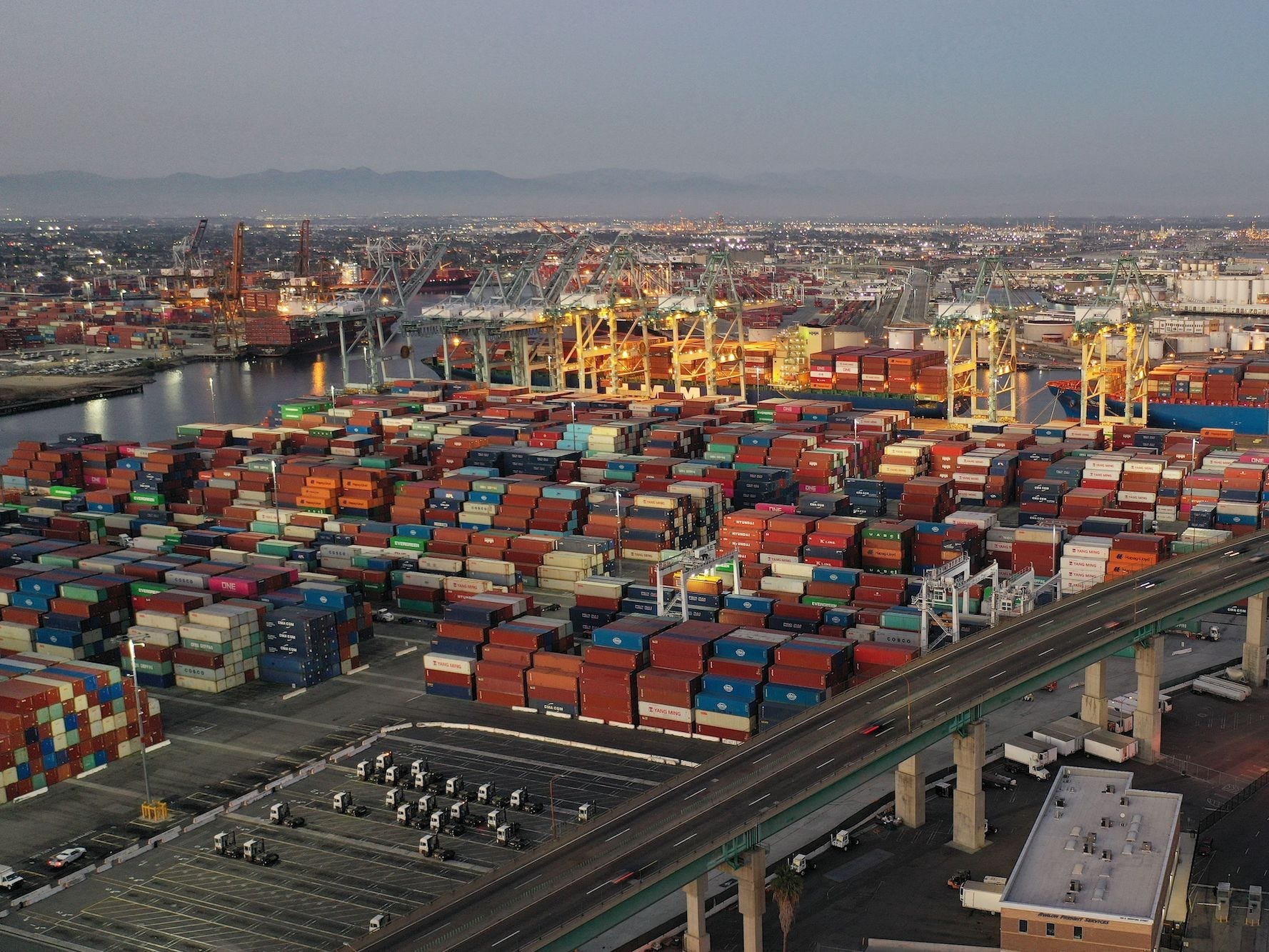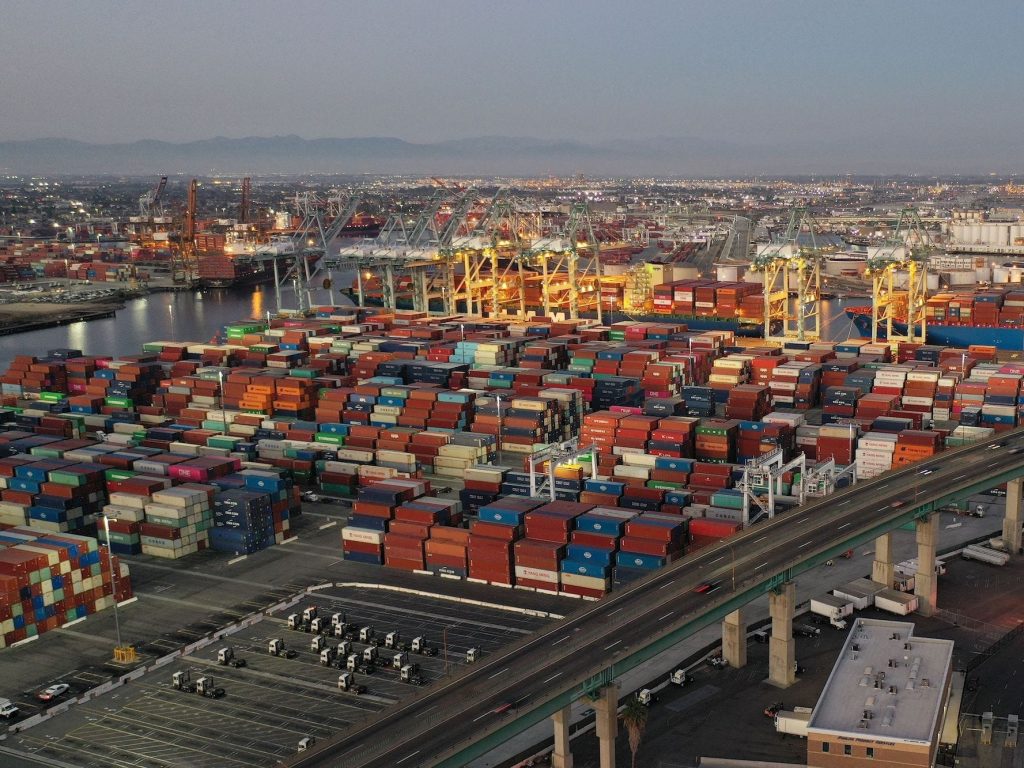
- 58,900 containers are racking up $100-per-day fines at ports in Southern California.
- Shipping companies will be charged on November 15 for containers that linger in ports for over 9 days.
- Experts told Insider they expect the fines will do little to move the goods out of the ports.
58,900 shipping containers are racking up fines at ports in Los Angeles and Long Beach.
Last month, the Southern California ports announced that they would begin fining shipping companies $100 per day for every container that was left behind at the terminals for over 9 days. The fee will also increase by $100 for every day the container lingers past the time constraint.
The ports began collecting data on Monday and plan to start charging the companies on November 15.
The new charges are the result of record backlogs at the California ports that are responsible for over 40% of all US imports. Port of Los Angeles Executive Director Gene Seroka said the punitive charges are an attempt to discourage shippers from using the ports as a makeshift warehouse. Storage space in nearby warehouses has become scarce in recent months due to a shortage of workers.
To date, the Port of Los Angeles has about 84,000 containers waiting on docks to be transported elsewhere, 40,000 of which have lingered at the port for over 9 days, Seroka told American Shipper, a trade publication. Similarly, the Port of Long Beach has 18,900 containers that have been at the docks past the 9-day period.
The containers represent about $2.6 billion in goods, according to Freight Waves' calculations of the average value of containerized imports at the Southern California locations.
Flexport CEO Ryan Petersen explained on Twitter that the fees will add about $2,000 on average to every container or about 2% of the average value of the goods in the container. Two years ago, $2,000 would have been the entire cost of shipping the ocean freight, he added.
Multiple experts told Insider they expect the fees to do little to move the goods out of the ports.
"The issue isn't about a lack of desire to move boxes, but a lack of physical space," Corey Bertsch, VP Solutions Consulting at Slync.io, a global logistics company, told Insider. "[These fines will] simply get passed onto beneficial cargo owners who will begrudgingly accept that their rates have gone up. These containers would move if they could, but it's a combination of warehouses, truck and labor issues."
Kearney Partner and Lead of the Analytics Practice for the Americas, Michael Zimmerman, told Insider shippers are more likely to be incentivized by demurrage fines than the $100 add-on. Carriers are charged demurrage fines for every day the container stays at the port past its allotted time - typically between four to seven days after the container is unloaded from the ship. The fines range from $75 to $300 per day and can grow the longer the container remains in the port.
Harbor Truckers Association CEO Matt Schrap told Insider it would be more efficient for the ports to charge companies for the excess dwell time of empty containers - with which warehouses and shipping yards have been over-run.
"However well intended, it's misdirected," Schrap said in a statement. "The most unfortunate part of this punitive measure is the fact that the ocean carriers have been very open in stating these fees will be passed on to the BCO's [beneficial cargo owner] who in turn will likely pass onto the American consumer in the form of higher prices," he added.

